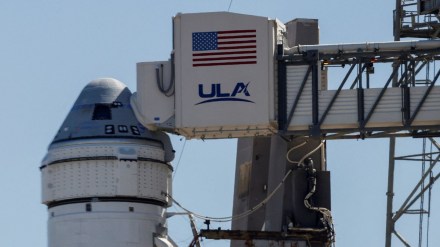Boeing’s first astronaut flight attempt on Saturday was thwarted due to a last-minute computer malfunction, AP reported. This marks the latest in a series of delays over the years.
Two NASA astronauts were strapped into the company’s Starliner capsule when the countdown was automatically halted at 3 minutes and 50 seconds by the computer system that controls the final moments before liftoff.
With only a brief window for takeoff, there was insufficient time to address the issue, resulting in the launch being called off. Technicians quickly arrived at the pad to assist astronauts Butch Wilmore and Suni Williams out of the capsule atop the fully fueled Atlas V rocket at Cape Canaveral Space Force Station. The hatch was reopened within an hour of the abort.
Tory Bruno, CEO of United Launch Alliance, stated that the team could not access the computers to troubleshoot the problem until the rocket is drained of all its fuel. Bruno explained that one of the three redundant computers near the rocket was operating sluggishly, and all three must function properly to proceed with the launch.
Depending on the necessary repairs, the next launch attempt could be as early as Wednesday. If the launch does not occur within the coming week, it will be delayed until mid-June to move the rocket off the pad and replace the batteries.
Boeing’s Mark Nappi said, “This is the business that we’re in.”
Second attempt, challenges in Boeing’s astronaut flight journey
The aborted launch attempt on Saturday was the second for Boeing’s first astronaut flight. The initial attempt on May 6 was delayed due to leak checks and rocket repairs. NASA seeks a backup to SpaceX, which has been successfully flying astronauts since 2020.
Boeing was originally scheduled to launch its first crew around the same time as SpaceX, but its initial uncrewed test flight in 2019 was hampered by severe software issues and did not reach the space station. A subsequent attempt in 2022 showed improvement but faced parachute problems and flammable issues, leading to further delays.
Last month, a small helium leak in the capsule’s propulsion system compounded existing issues with a rocket valve. Additional valve trouble emerged two hours before Saturday’s planned liftoff. The team managed to use a backup circuit to activate the ground-equipment valves and complete fueling the rocket’s upper stage. Despite their efforts, the computer system known as the ground launch sequencer terminated the launch attempt.
“Of course, this is emotionally disappointing,” NASA astronaut Mike Fincke, the backup pilot, said from neighbouring Kennedy Space Center shortly after the countdown was halted.
But he said delays are part of spaceflight. “We’re going to have a great launch in our future.”
